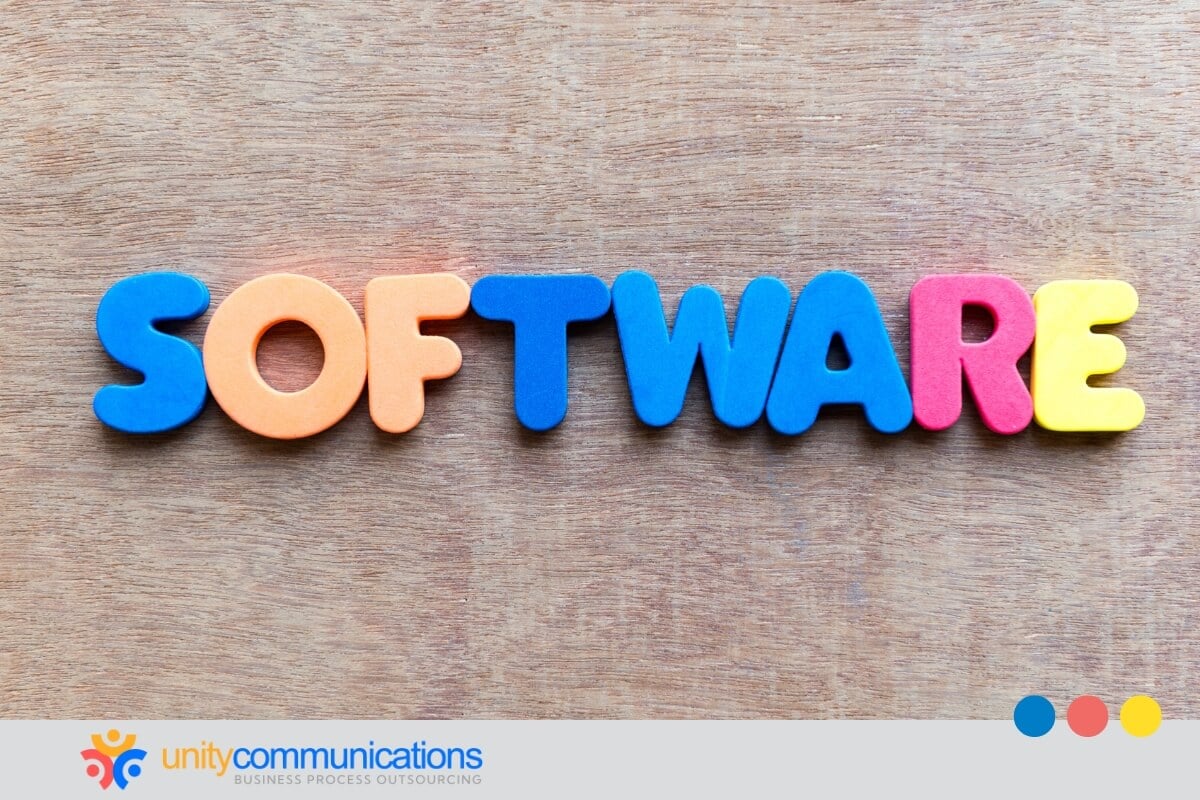IN THIS ARTICLE
Table of Contents
Virtual assistants (VAs) are vital in enhancing efficiency and productivity in today’s rapidly evolving healthcare industry. Organizations engage VAs for administrative support services, such as appointment scheduling, patient data management, and medical billing.
This broad scope of work necessitates comprehensive training, especially in medical jargon. Equipping a virtual medical assistant with a solid understanding of healthcare terminology ensures accuracy and communication, improving overall service quality.
Read on to learn the best strategies for training virtual assistants in medical terminology!
Importance of training virtual assistants in medical terminology

One effective way to leverage VAs proficient in healthcare-related tasks is through business process outsourcing (BPO). But what is BPO? It is the practice of delegating non-core tasks to a service provider. How outsourcing works is the BPO company deploys skilled professionals, such as VAs, to manage assigned tasks on behalf of the client.
These VAs are skilled in customer service, data entry, social media management, content creation, bookkeeping, medical billing, and research. However, they can perform healthcare tasks better with additional training in medical terminology.
With such knowledge, VAs can process patient data more accurately and comply with industry regulations. They can also provide relevant information to patients and collaborate with internal teams. Lastly, training virtual assistants in medical terminology reduces the risks of errors and boosts operational efficiency, improving patient outcomes and streamlining administrative processes.
Effective training techniques for medical terminology
Proper medical terminology training is essential to maintaining accuracy and communication when outsourcing administrative tasks in healthcare to VAs. Regular testing and integration with daily tasks help VAs master jargon and excel in their roles.
Regular testing and feedback
Periodic testing and feedback are crucial for reinforcing learning and ensuring mastery of medical terminology. Quizzes and practical tests assess VAs’ comprehension and ability to apply their knowledge in real-world scenarios, solidifying learning.
Continuous assessment allows VAs to identify and address areas for improvement, leading to a more thorough understanding of medical terms and their usage. Ongoing evaluation supports better performance in managing patient data and communicating effectively within healthcare settings.
Integration with daily tasks
Training virtual assistants in medical terminology by incorporating lessons in daily tasks enhances their ability to apply these terms in real-world scenarios. When VAs regularly use and encounter medical terminology in their routine work, they reinforce their understanding and improve retention.
Practical application also makes them more proficient and accurate in handling patient data and communicating with healthcare professionals. Over time, continuous exposure ingrains medical terminology into their daily responsibilities.
Utilizing technology in training virtual assistants in medical terminology

Healthcare BPO services leverage advanced tools to significantly improve and simplify learning. Organizations can follow suit when training virtual assistants in medical terminology.
Interactive learning platforms
Interactive learning platforms include online courses and simulation tools that create immersive learning experiences, helping users engage with real-world scenarios. These can benefit virtual assistants for Phoenix healthcare organizations or Chicago clinics as they offer practical training that closely mirrors the tasks and challenges faced in the healthcare industry.
With interactive tools, VAs can practice handling patient data, communicating with healthcare professionals, and managing documentation in a more realistic setting. This hands-on approach enhances understanding and retention of medical terminology and improves performance and efficiency.
Software and apps
Software and mobile applications make learning medical terminology interactive and accessible. Their various features enhance understanding and retention of complex medical terms.
The following are perfect examples of apps and software for mastering medical jargon:
- Medscape has a comprehensive medical dictionary and articles to help users learn terminology in context.
- Quizlet uses flashcards and quizzes to help VAs memorize medical terms and definitions.
- Anki is a spaced repetition software that improves memory retention.
- Medical Terminology App features interactive quizzes and terminology lists for on-the-go learning.
- Visible Body provides detailed 3D anatomical models for more engaging, immersive learning.
Challenges and solutions for training VAs in medical terminology

BPO in telemedicine offers access to skilled VAs. However, training them in medical terminology presents several challenges you must address to ensure effective learning and accurate handling of healthcare processes in BPO.
Keep reading to discover common training obstacles and strategies to overcome them.
Varied learning paces
People learn at different paces. Customizing training approaches allows VAs to master medical terms based on their learning speed or style.
The following strategies can help address this issue:
- Tailor training plans based on individual assessment results to match different learning speeds.
- Accommodate VAs’ different time commitments by letting them complete modules at their own pace.
- Use a mix of videos, interactive simulations, and text-based materials to cater to different learning styles.
- Schedule one-on-one sessions to monitor progress and provide additional support or adjustments as needed.
- Encourage collaboration and knowledge sharing to support varied learning needs and reinforce concepts.
These solutions support each virtual assistant’s unique learning journey and better prepare them for their roles. Additionally, choosing the right virtual assistant from the outset is crucial for maximizing training effectiveness and overall performance.
Evolving medical language
Virtual assistants must stay updated on new terminology and medical advancements to maintain accuracy and relevance. The following techniques can help them keep up with the fast-paced medical industry:
- Provide periodic refresher courses and updates on new medical terms and advancements.
- Offer access to medical journals, newsletters, and industry publications.
- Host or recommend webinars and workshops focused on emerging medical terminology and practices.
- Encourage participation in relevant certifications and continuing education opportunities.
- Create a system for sharing updates and new terminology among team members, such as a shared database or communication platform.
These strategies ensure that virtual assistants remain knowledgeable and proficient in the latest medical terminology. As a result, VAs can contribute meaningfully to healthcare and improve patient care.
The bottom line
Training virtual assistants in medical terminology is crucial for managing accurate patient data and communicating effectively within the healthcare industry. Proper training enhances their performance by improving their understanding of medical terms and their applications in real-world scenarios.
Long-term benefits include increased efficiency, reduced errors, and a stronger ability to adapt to new medical advancements, ultimately supporting better patient care.
Let’s connect to learn more about the best strategies for training virtual assistants in medical terminology and optimizing their impact in the healthcare sector.





